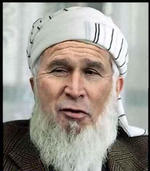 I was watching a documentary on Jimmy Carter's presidency the other day. It is striking how he is such an intelligent and hardworking person, who's always trying to do what his heart tells him is the right thing to do, so he can act with integrity. And he accomplished some remarkable things both while he was president and after, in terms of brokering peace internationally. But at the same time he was one of the most unpopular and unsuccessful U.S. presidents ever, according to popularity polls during his presidency, lower than any previous president in history. Which points us to something very important which he didn't do. He didn't manage the public perception of him or the country or the world. He speaks in a boring monotone and doesn't pay much attention to public relations. So things go badly in the economy and in polls, because people don't have confidence that things are good. Whereas an actor like Ronald Reagan gave great speeches, and seemed confident and inspiring, so people responded accordingly. He mushroomed taxes and national debt more than any U.S. president every had, effectively nationalizing several trillion dollars worth of private property, while pretending that the government was being trimmed down. What mattered the most was the perception, not what actually happened. And fast forward to George W. Bush, and it is now ALL about perception. He's half illiterate, knew nothing about history or foreign policy, is a recovering alcoholic and cocaine addict, and has many other problems that other candidates would have been nailed for. Now it is no longer necessary to get all the details right, and in most situations it doesn't really matter much if the facts are all wrong. As long as the president is looking good, looking confident while he says the right things, and as long as there are a bunch of people supporting him who do likewise, it doesn't really matter if the only reason for bombing Iraq is to get at its oil business. Doesn't really matter if nothing much came out of the investigation of 9/11. Doesn't really matter if Bin Laden gets to go free for no good reason. Doesn't really matter that the U.S. is now more in debt than ever before, and that military expenditures are skyrocketing. All that matters is managing the confidence in the system as it is. I was watching a documentary on Jimmy Carter's presidency the other day. It is striking how he is such an intelligent and hardworking person, who's always trying to do what his heart tells him is the right thing to do, so he can act with integrity. And he accomplished some remarkable things both while he was president and after, in terms of brokering peace internationally. But at the same time he was one of the most unpopular and unsuccessful U.S. presidents ever, according to popularity polls during his presidency, lower than any previous president in history. Which points us to something very important which he didn't do. He didn't manage the public perception of him or the country or the world. He speaks in a boring monotone and doesn't pay much attention to public relations. So things go badly in the economy and in polls, because people don't have confidence that things are good. Whereas an actor like Ronald Reagan gave great speeches, and seemed confident and inspiring, so people responded accordingly. He mushroomed taxes and national debt more than any U.S. president every had, effectively nationalizing several trillion dollars worth of private property, while pretending that the government was being trimmed down. What mattered the most was the perception, not what actually happened. And fast forward to George W. Bush, and it is now ALL about perception. He's half illiterate, knew nothing about history or foreign policy, is a recovering alcoholic and cocaine addict, and has many other problems that other candidates would have been nailed for. Now it is no longer necessary to get all the details right, and in most situations it doesn't really matter much if the facts are all wrong. As long as the president is looking good, looking confident while he says the right things, and as long as there are a bunch of people supporting him who do likewise, it doesn't really matter if the only reason for bombing Iraq is to get at its oil business. Doesn't really matter if nothing much came out of the investigation of 9/11. Doesn't really matter if Bin Laden gets to go free for no good reason. Doesn't really matter that the U.S. is now more in debt than ever before, and that military expenditures are skyrocketing. All that matters is managing the confidence in the system as it is.
My point here is not the politics. Rather, the world seems to have gradually changed so it is more and more about the perception of what is going on, rather than what really is going on. It is a virtual reality. That is both good and bad. The bad part is that slick political and corporate rulers can use the mass media to create the picture of reality that they would like to create. The good part is that it is public opinion that really rules the world. It is what you and I think, and what you and I see, that makes a difference, if there are enough of us. Which means, you don't necessarily have to figure out how to be president, or how to run a billion dollar company, or how to own an army. You just need to figure out how to influence public opinion in a more useful direction. It is not controlled, only influenced or inspired. If most people in the world stopped voting for people who mislead them, while pursuing special interests; if most people in the world stop buying products from companies who don't have their best interest in mind - the power structures would change very quickly. And how it all looks is now more important than who owns what. If public opinion changes its mind, and starts believing in totally different structures, and SEEING different structures - that would be the new world order.
[ Politics | 2002-12-29 18:12 | | PermaLink ] More >
|
 "The advantage of a free market is that it allows millions of decision-makers to respond individually to freely determined prices, allocating resources – labor, capital and human ingenuity – in a manner that can’t be mimicked by a central plan, however brilliant the central planner." --Freidrich von Hayek
"The advantage of a free market is that it allows millions of decision-makers to respond individually to freely determined prices, allocating resources – labor, capital and human ingenuity – in a manner that can’t be mimicked by a central plan, however brilliant the central planner." --Freidrich von Hayek
 I was watching a documentary on Jimmy Carter's presidency the other day. It is striking how he is such an intelligent and hardworking person, who's always trying to do what his heart tells him is the right thing to do, so he can act with integrity. And he accomplished some remarkable things both while he was president and after, in terms of brokering peace internationally. But at the same time he was one of the most unpopular and unsuccessful U.S. presidents ever, according to popularity polls during his presidency, lower than any previous president in history. Which points us to something very important which he didn't do. He didn't manage the public perception of him or the country or the world. He speaks in a boring monotone and doesn't pay much attention to public relations. So things go badly in the economy and in polls, because people don't have confidence that things are good. Whereas an actor like Ronald Reagan gave great speeches, and seemed confident and inspiring, so people responded accordingly. He mushroomed taxes and national debt more than any U.S. president every had, effectively nationalizing several trillion dollars worth of private property, while pretending that the government was being trimmed down. What mattered the most was the perception, not what actually happened. And fast forward to George W. Bush, and it is now ALL about perception. He's half illiterate, knew nothing about history or foreign policy, is a recovering alcoholic and cocaine addict, and has many other problems that other candidates would have been nailed for. Now it is no longer necessary to get all the details right, and in most situations it doesn't really matter much if the facts are all wrong. As long as the president is looking good, looking confident while he says the right things, and as long as there are a bunch of people supporting him who do likewise, it doesn't really matter if the only reason for bombing Iraq is to get at its oil business. Doesn't really matter if nothing much came out of the investigation of 9/11. Doesn't really matter if Bin Laden gets to go free for no good reason. Doesn't really matter that the U.S. is now more in debt than ever before, and that military expenditures are skyrocketing. All that matters is managing the confidence in the system as it is.
I was watching a documentary on Jimmy Carter's presidency the other day. It is striking how he is such an intelligent and hardworking person, who's always trying to do what his heart tells him is the right thing to do, so he can act with integrity. And he accomplished some remarkable things both while he was president and after, in terms of brokering peace internationally. But at the same time he was one of the most unpopular and unsuccessful U.S. presidents ever, according to popularity polls during his presidency, lower than any previous president in history. Which points us to something very important which he didn't do. He didn't manage the public perception of him or the country or the world. He speaks in a boring monotone and doesn't pay much attention to public relations. So things go badly in the economy and in polls, because people don't have confidence that things are good. Whereas an actor like Ronald Reagan gave great speeches, and seemed confident and inspiring, so people responded accordingly. He mushroomed taxes and national debt more than any U.S. president every had, effectively nationalizing several trillion dollars worth of private property, while pretending that the government was being trimmed down. What mattered the most was the perception, not what actually happened. And fast forward to George W. Bush, and it is now ALL about perception. He's half illiterate, knew nothing about history or foreign policy, is a recovering alcoholic and cocaine addict, and has many other problems that other candidates would have been nailed for. Now it is no longer necessary to get all the details right, and in most situations it doesn't really matter much if the facts are all wrong. As long as the president is looking good, looking confident while he says the right things, and as long as there are a bunch of people supporting him who do likewise, it doesn't really matter if the only reason for bombing Iraq is to get at its oil business. Doesn't really matter if nothing much came out of the investigation of 9/11. Doesn't really matter if Bin Laden gets to go free for no good reason. Doesn't really matter that the U.S. is now more in debt than ever before, and that military expenditures are skyrocketing. All that matters is managing the confidence in the system as it is.